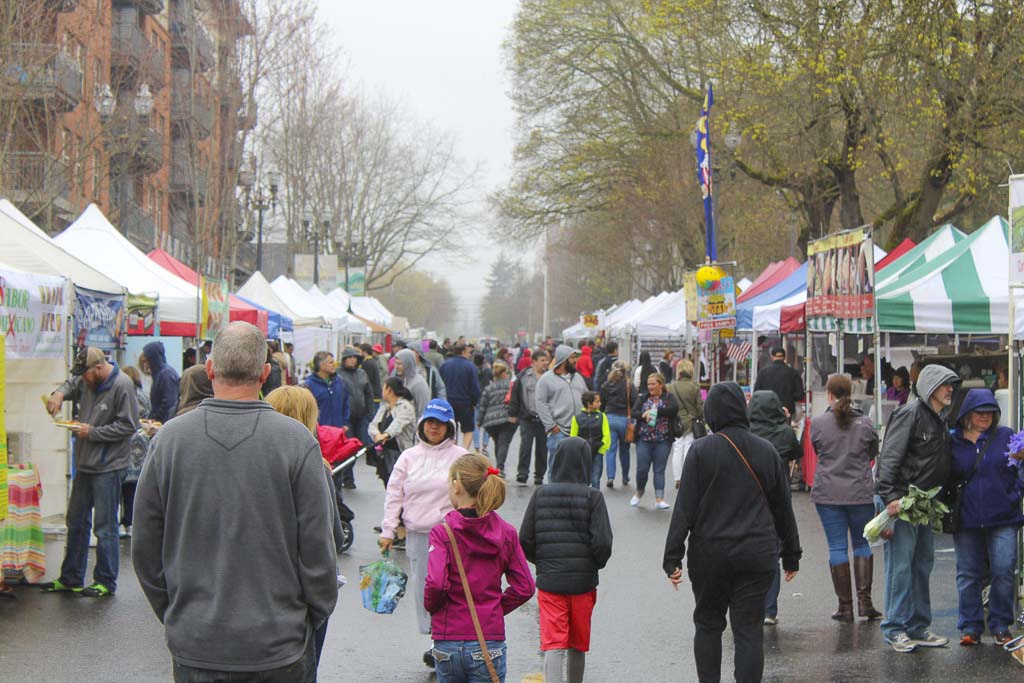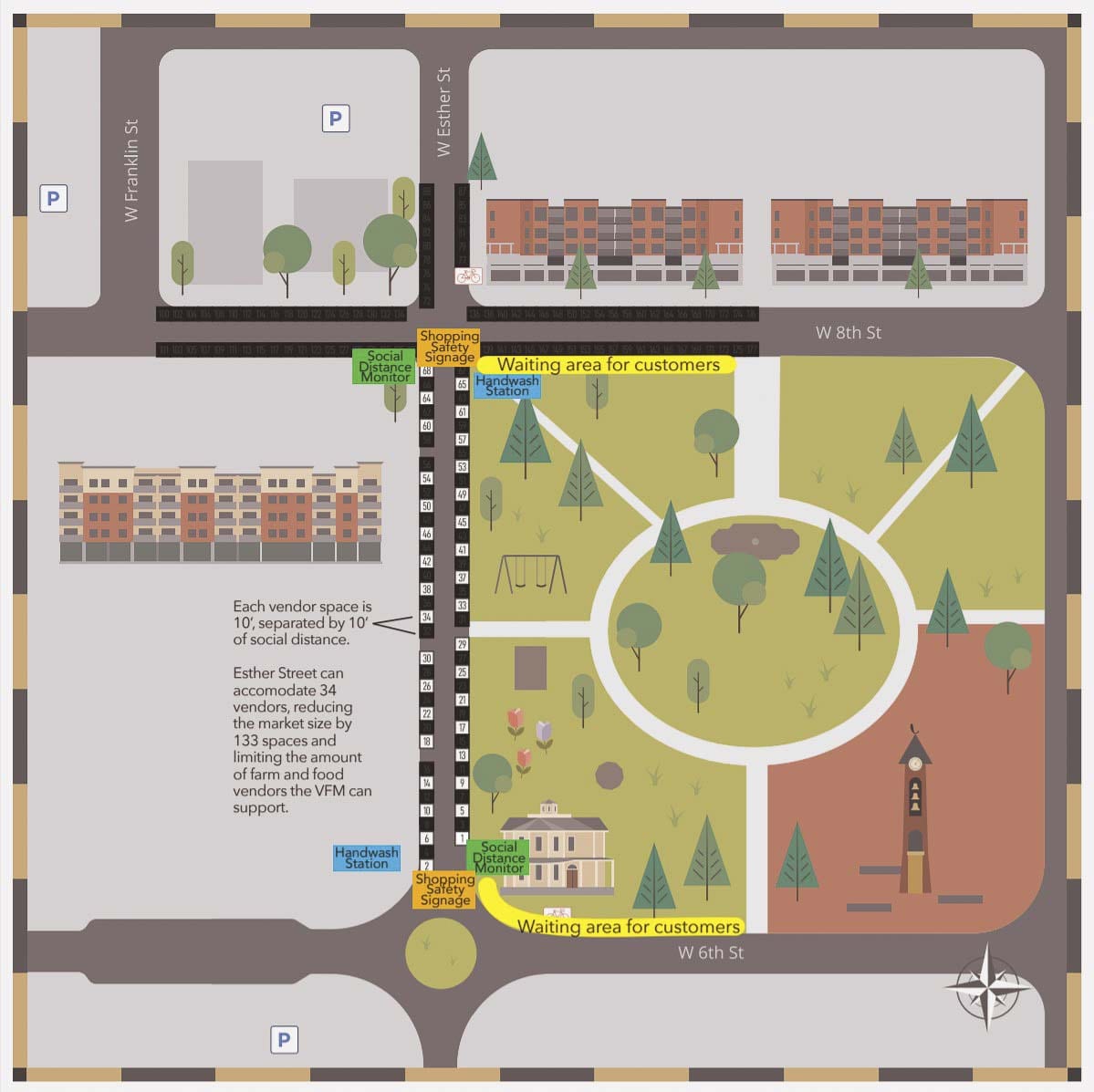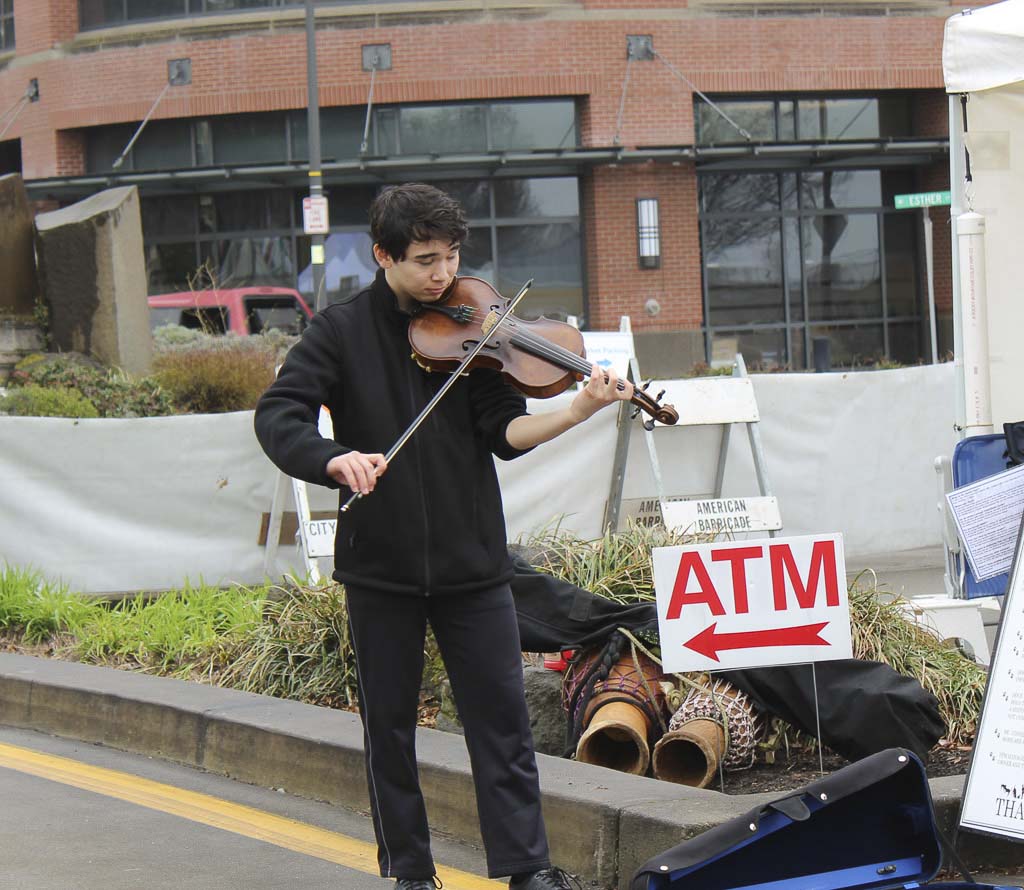The market would feature vendors limited to essential items only, and efforts to enforce social distancing
VANCOUVER — The Vancouver Farmers Market may soon reopen, but it will look much different from what people are used to.
Vancouver City Council on Monday approved an emergency order that would allow the market to open in the near future, with a series of alterations in place to address concerns over social distancing amidst the spread of the novel coronavirus.

Those changes, which are still being finalized, would include cutting the number of vendors from 167 to no more than 34, in order to provide at least 10 feet of space between booths, an 80 percent reduction.
The vendors allowed in would also only be providing products deemed essential under the governor’s “Stay Home, Stay Healthy” order, according to Vancouver City Manager Eric Holmes.
“I do think it’s important to acknowledge that, really, the only reason the city is involved in this
in the way that we are is that the market occurs on publicly owned properties and in the public right of way,” Holmes told the council members.
The governor’s order does permit public markets, so long as they limit available items to essential goods only, such as produce, baked goods, and prepackaged hot meals.
Holmes said the Farmers Market presents a rare opportunity for people living downtown to have easy access to fresh produce, especially with C-TRAN buses running limited routes currently, making it more difficult to get to grocery stores outside of downtown.
Jordan Boldt, executive director of the Farmers Market, said the market served nearly 1,800 people using the state’s Supplemental Nutrition Assistance Program (SNAP) in 2018.
The state currently only allows SNAP dollars to be spent at a physical location, making it impossible for those customers to go to an online ordering model. The market is also able to use grant funding to match the first $10 of a SNAP purchase, and is hopeful they can boost that to $20 this year.
“Which gives them $40 to spend on local food,” said Boldt, noting that 25 percent of their SNAP customers live downtown.

Boldt said the market reached out to Clark County Public Health back in February, even before the first confirmed case in Vancouver, to begin the conversation about how they might be able to move forward safely.
“We’re also working pretty closely with the Washington State Department of Health and the Washington Department of Agriculture,” Boldt told the council. “Both have biologists on staff that are actively advising markets and vendors and farmers, and those in the agriculture industry.”
Those conversations led to a plan to limit vendors to produce, baked goods, and prepackaged meals only. Seating areas would be removed, live events would be canceled, and social distancing monitors would be on hand to step in if the market becomes so crowded it’s difficult to maintain six feet between individuals.
“We want to frame it that, not just vendors, but customers who are choosing to attend and shop, there’s an expectation that they’ll sort of function a certain way,” said Boldt. “And we try to make that as clear as we can and reinforce that when needed.”
Still, Boldt admits that their resources are somewhat limited, and much of the control measures will be up to vendors to properly enforce.
Vendors are being asked to clearly mark a single point of entry to their booth, and provide markers for people to queue up with enough distance in-between. The space between booths will also be roped off to prevent people from using them as pathways.
Boldt said they are working on messaging for customers, urging people to come with a list, limit how many people attend, make use of hand washing stations and sanitizer provided on site, and move through as quickly as possible.
The city would open up a nearby parking lot usually used by employees, in order to decrease the usage of on street spots. Once the number of people inside the market exceeded capacity — a number still being determined — Boldt said they would have waiting areas to the north and south, with monitors ushering people in once someone leaves.
Asked how the city would enforce social distancing, Holmes said the market and vendors would primarily be responsible for managing things, but the city might step in if there were a “prolonged state of lack of compliance.”
Holmes also noted that, despite concerns, having the market at Esther Short Park at least gives the city one option to enforce regulations.
“We don’t send police out to enforce social distancing and those kinds of things in grocery stores,” he said. “Generally we have seen folks who are operating these essential functions voluntarily complying, consistent with public health and CDC guidance. But if there’s a previous issue, then we would work with any operator, including the markets, to improve compliance. And if they’re unable to then, in this case, we have a street use permit that would allow us to close the market.”

In response to a question from Councilor Ty Stober about whether they could potentially find another location for the market that isn’t surrounded by residential apartments, Boldt said it is something they’re considering, but would be difficult to accomplish on short notice.
“As far as space on the street, I think there’s some interesting perspective,” Boldt added. “You know, your average grocery store aisle is around six feet wide. Our street, after all the booths are set up, I think is 27 feet wide.”
Boldt also noted that Portland Farmers Market has seen their traffic fall from around 3,000 people per hour to around 200, making it easier to keep crowds flowing through without bumping into each other, “and that’s just happening naturally.”
As for whether they even have enough vendors interested in being part of the market, Boldt said it’s “a mixed bag.”
“We definitely have some vendors … who may be immunocompromised, or they live with someone who’s immunocompromised,” Boldt added. “They’re clearly not going to be at the farmers market. We’re going to find ways for them to just maybe do shipping, or do drop offs in a safe way.”
Monday’s approval of the emergency ordinance was the first step in the process to allow the market. The Vancouver fire marshall would still need to issue a fire and safety permit, meaning the council could still effect additional changes if they are deemed necessary before the market could open.
In the meantime, Boldt said the market would ramp up efforts to communicate with the public their plan, and provide advice on their website and social media channels about best practices.
That could include coming alone and bringing a list, and sending someone else if you are at high risk.
Boldt said it takes at least a week for them to “spool up” and get vendors lined up with staffing, so they wouldn’t open this coming weekend.
“Possibly the weekend after,” he said, adding that it would need to be with the city’s blessing. “We in no way want to work against the intent of the city and the city manager’s mission, so we’re going to partner with them to ensure that when we open everyone’s comfortable and on board.”




